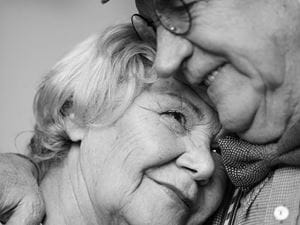
It’s a sad truth that at some point we as children will likely become the caretakers for our parents. There is nothing easy about this transition and, unfortunately, it often sneaks up on us catching us unprepared and in denial. But aging is the great equalizer – no one escapes it, and as uncomfortable as it may be to think of your parents as being anything less the vibrant adults you have always leaned on, it’s much better to look forward and be ready for the inevitable.
Your parents’ aging and the associated changes aren’t just tough for you though. They are even more as difficult for your parents. The idea they may have to become reliant on others, especially others that were once reliant on them, can be very painful. Their discomfort with these changes can make navigating them even more challenging for you.
While there are many practical and financial concerns when it comes to your parents’ golden years, what it can be most difficult to handle’s the associated emotions – both yours and theirs. Those feelings have to be faced though because they don’t just go away. There are, however, a few things that can be helpful to keep in mind as you cope with your new role.
The Emotions of a Child Turned Caregiver
There is no easy way to move from being the child to the caregiver. The fluctuating and sometimes overwhelming and fluctuating emotions that come along with your changing roles may feel like they take over and rule your life. Grief, guilt, resentment, and the intense weight of responsibility are all normal and valid feelings. In fact, all feelings you experience are valid. And they will vary from person to person in prominence and intensity depending upon the relationship you have had with your parent.
Many adult children who are taking care of their parents feel guilty about any emotion that isn’t positive and altruistic. After all, they took care of you, so it’s only right that you do the same when they need it, right? Probably, but that doesn’t mean that the natural feelings of frustration, fear, even anger and impatience aren’t normal. I promise that when they were raising you they felt these feelings occasionally too.
In order to effectively handle these feelings you will first need to admit to them. How you do this depends on your circumstances. If you have a strong support system and people whom you trust you may choose to talk to them about what you’re experiencing. If not, then a trained counselor with experience supporting caregivers may be a good choice. Regardless, understand that your feelings, no matter what they are, are normal and have been experienced by others in your situation.
Some of the most common feelings that adult children caring for aging parents experience (and often try to hide or turn away from) include the following:
Depression
Seeing your parent’s health start to fail means facing their inevitable death. Many children think of their parents as something close to immortal. Whether you had a close relationship or not, their presence in your life has likely been constant even if distant. The idea of your life without them in it can lead to depression and possibly cause you to consider your own mortality.
Anger
It’s not unusual to feel angry at the position you’re now in. You are likely managing many things at this stage of your life and having to care for your parents on top of all that will make things incredibly difficult. Not to mention the how-dare-they feeling you may get at the idea of them becoming infirm and potentially passing away.
Disgust
Just like children who need to be changed, cleaned, and fed, it’s possible your parents may need that as well. Or maybe, they just need to be constantly reminded of little things and handheld through their days. Whatever it is, feeling disgust over needing to care for an adult, especially your parent, in this manner is normal. But there are resources available in many cases to assist you.
Loneliness
Caring for a parent can be very isolating. You may find that all your spare time is dedicated to their care and your hobbies and social life are pushed to the side. This can be very difficult on your relationship with your partner as well. Many caregivers are managing not only their parents, but children of their own in addition to jobs and other responsibilities. This can leave very little time and energy for the intimacy and connection that’s required for keeping a relationship healthy.
Resentment
It’s not uncommon to feel like you are missing out on many things due to your commitments to your parents. Whether it’s social engagements, travel, or just being able to relax, you may feel pulled in so many different directions that you become resentful and jealous of those who aren’t in the same situation.
Often referred to as the sandwich generation, many adult children caring for parents are also caring for their own children also. This creates a compounding layer of responsibilities and stress.
Effectively dealing with your emotions and stress that comes with this stage of life is crucial. If you don’t acknowledge them they will find ways to surface and those can be detrimental your to psychological and physical health, not to mention relationships with everyone around you, including the parents you are caring for.
Coping With Your Feelings
It’s important to understand that you’re not alone. There are many people who have been, or are currently, in the same situation. This means there are also many resources and support options available to help you manage your circumstances and guide you through the complex associated emotions.
It’s vitally important to give yourself permission to accept help and to live your own life. You will need to take breaks and maintain the aspects of your life that make you happy and keep you sane. Self-care is so important in order for you to continue to care for anyone in your life, especially your parents. And you deserve and need it too. Your parents needed the same things when raising you.
No matter how much you are involved in your parent’s care, whether it’s just a little or as a primary caregiver, taking care of ailing and aging parents is very difficult. Although it’s often compared to the care they gave you as a child, the emotions can be far more complicated because it doesn’t feel like the natural order of things. If your role is changing from child to caretaker remember that it shouldn’t ever mean that you fully give up your own life and all that makes you happy. Your parents wouldn’t have wanted that.

